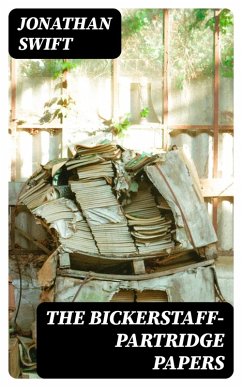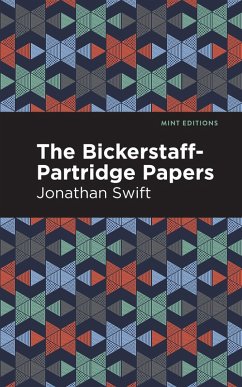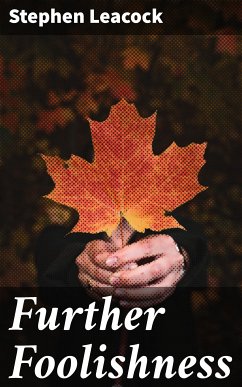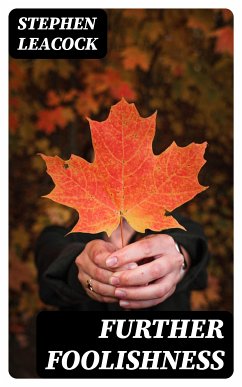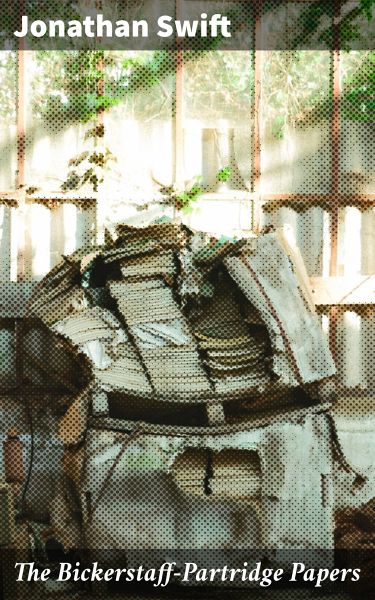
The Bickerstaff-Partridge Papers (eBook, ePUB)
Astrological Hoaxes and Literary Wit
Versandkostenfrei!
Sofort per Download lieferbar
0,49 €
inkl. MwSt.
Weitere Ausgaben:

PAYBACK Punkte
0 °P sammeln!
In "The Bickerstaff-Partridge Papers," Jonathan Swift masterfully blends satire and journalism to explore themes of credulity, superstition, and the societal penchant for believing in charlatans. Written in the early 18th century, this compilation of letters, pamphlets, and essays presents Swift'Äôs razor-sharp wit through the guise of the fictitious doctor, Isaac Bickerstaff. The narrative unfolds in an epistolary format, engaging readers in a dialogue about the credibility of astrologers and the public's gullibility. Swift'Äôs autocratic tone and innovative style highlight the relevance ...
In "The Bickerstaff-Partridge Papers," Jonathan Swift masterfully blends satire and journalism to explore themes of credulity, superstition, and the societal penchant for believing in charlatans. Written in the early 18th century, this compilation of letters, pamphlets, and essays presents Swift'Äôs razor-sharp wit through the guise of the fictitious doctor, Isaac Bickerstaff. The narrative unfolds in an epistolary format, engaging readers in a dialogue about the credibility of astrologers and the public's gullibility. Swift'Äôs autocratic tone and innovative style highlight the relevance of his criticisms of contemporary society, particularly the rise of pseudoscience and false prophets, marking the work as a poignant contribution to the literary satire of his era. Jonathan Swift, born in 1667, was an Irish writer and political pamphleteer whose keen observations of human nature informed much of his work. Educated at Trinity College, Dublin, and a clergyman, Swift was deeply engaged in the political and social discourses of his time. His experiences as a satirist in a world rife with corruption and deception compelled him to create this biting commentary, reflecting not only his disdain for quackery but also his fervent desire to provoke critical thought among his readers. "The Bickerstaff-Partridge Papers" is essential reading for anyone interested in the intersection of literature, history, and social critique. Swift'Äôs incisive prose encourages readers to reflect on the nature of belief and skepticism, reminding us of the timeless struggle against ignorance and deception. This compelling collection is a testament to Swift'Äôs enduring legacy as one of literature's premier satirists.
Dieser Download kann aus rechtlichen Gründen nur mit Rechnungsadresse in A, B, BG, CY, CZ, D, DK, EW, E, FIN, F, GR, H, IRL, I, LT, L, LR, M, NL, PL, P, R, S, SLO, SK ausgeliefert werden.




